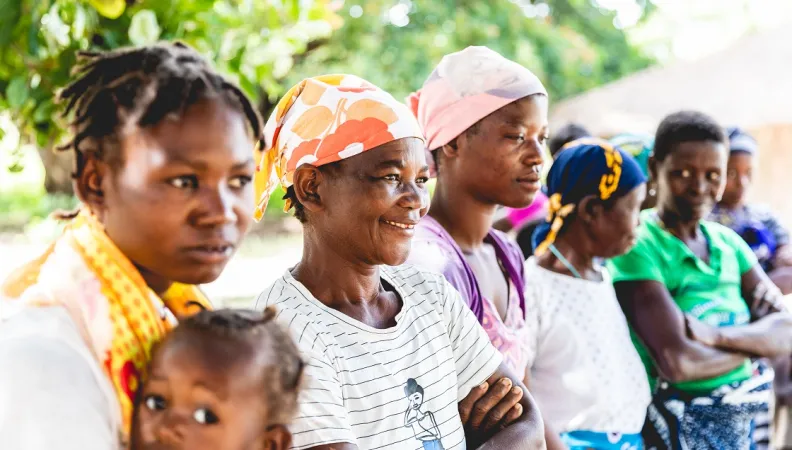Share the page
“Greater Inclusion of Women Develops Society as a Whole” - Mar Merita Blat
Published on

Respecting and reinforcing women’s economic and social rights; raising awareness of the right to sexual and reproductive health; and the right to have control over one’s own body more generally – these are among the concerns of AFD gender expert, Mar Merita Blat. To mark International Women’s Day, she discusses AFD Group’s actions aiming to promote gender equality.
How does gender equality figure in AFD Group’s overall strategy?
Mar Merita Blat: At AFD, the objective is to ensure that all women and men are free to make their own choices, without being held back by discrimination, inequality or gender stereotypes.
This is why we have made gender equality a strong marker of our 100% Social Link strategy, with the conviction that a greater participation of women develops society as a whole by making it fairer and more inclusive.
There are many drivers to promote public policies and programs that effectively support women’s empowerment and gender equality. AFD sets out ambitious measures on professional equality, and earmarks financial resources through our dedicated operations and financing.
As part of France’s international strategy for gender equality (2018-2022), AFD aims to have 50% of the volume of its commitments to be gender-responsive by 2022. In 2020, despite the international health crisis, we exceeded this objective and reached 67.1% of the annual volume of commitments containing a principal or significant objective of gender equality.
Could you give us examples of flagship operations that promote AFD’s feminist values?
Our operations focus on two main areas: strengthening women’s economic and social rights and raising awareness of the right to sexual and reproductive health and the right to have control over your own body.
We are operating in Colombia alongside the NGO Taller abierto, which supports Afro-Colombian communities affected by violence, and works on increasing the integration of women into society.
In the Central African Republic, we are providing financial support for the development of a care center for victims of sexual and gender-based violence, in partnership with the Dr. Mukwege Foundation and Pierre Fabre Foundation. The care comprises four components: medical, psychosocial, legal and social reintegration.
And the Tunisian Enda project provides micro-loans and training. It also carries out awareness-raising campaigns on the socioeconomic rights of women, with the aim of boosting women’s entrepreneurship in the country. Since this program was set up, over 800,000 households have been able to take part in the country’s economy. Over 60% are women.
We have also provided €10 million of support to the AFAWA initiative. Led by the African Development Bank, it involves removing structural barriers faced by women entrepreneurs in Africa, especially those living in rural areas. It aims to provide access to appropriate financing and training to promote women’s participation in local economies and secure for them a sustainable source of income.
What is AFD expecting from the Generation Equality Forum, which will be held in the first half of 2021?
We are expecting the Generation Equality Forum to generate concrete actions to continue to promote gender equality, 25 years on from the Beijing Platform and Declaration. This roadmap is necessary for the success of the Sustainable Development Goals (SDGs) for 2030, especially SDG n° 5 on gender. This is why AFD is a member of the team of the General Secretariat of the Generation Equality Forum (GEF).
In practical terms, our first mission is to set up the Support Fund for Feminist Organizations (FSOF) alongside the Ministry for Europe and Foreign Affairs. It aims to support civil society feminist organizations operating in partner countries. This fund is mobilizing €120 million over a 3-year period to finance the activities of feminist movements around the world. It targets local civil society organizations working for gender equality, the rights of women and girls and on gender issues.
The second, which will be reviewed at the GEF, is to strengthen the coalition of development banks on gender. At the Finance in Common Summit in November 2020 a Statement on Gender Equality and Women's Empowerment was made, and has now been signed by 26 development banks.
Further reading: Finance in Common Summit: Promoting Gender Equality
In this context, we organize working groups with UN Women on issues related to financing equality, good practices and accountability. We have also financed the International Development Finance Club study on external practices for gender equality. This study will propose 10 gender action plans for all IDFC’s volunteer banks. This work will continue during the second edition of the Finance in Common Summit, to be held next November.
